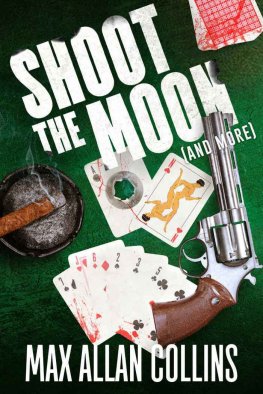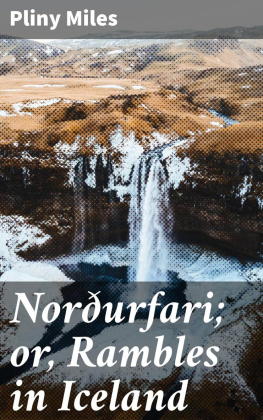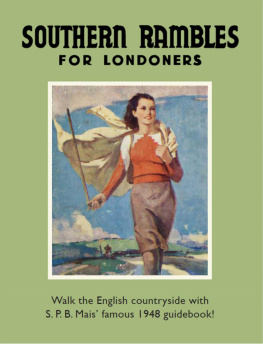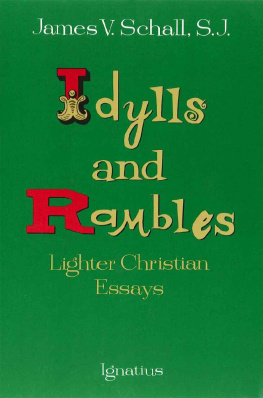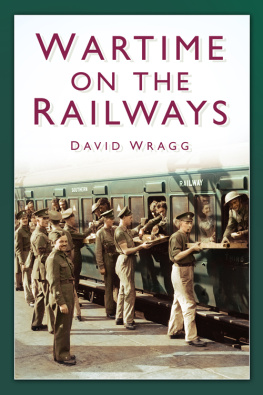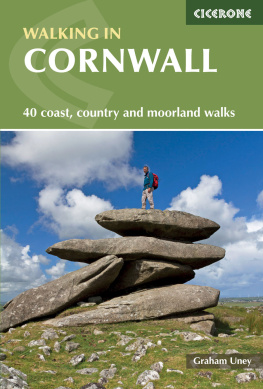Uilki Kollinz - Rambles Beyond Railways; or, Notes in Cornwall taken A-foot
Here you can read online Uilki Kollinz - Rambles Beyond Railways; or, Notes in Cornwall taken A-foot full text of the book (entire story) in english for free. Download pdf and epub, get meaning, cover and reviews about this ebook. year: 2009, genre: Prose. Description of the work, (preface) as well as reviews are available. Best literature library LitArk.com created for fans of good reading and offers a wide selection of genres:
Romance novel
Science fiction
Adventure
Detective
Science
History
Home and family
Prose
Art
Politics
Computer
Non-fiction
Religion
Business
Children
Humor
Choose a favorite category and find really read worthwhile books. Enjoy immersion in the world of imagination, feel the emotions of the characters or learn something new for yourself, make an fascinating discovery.

- Book:Rambles Beyond Railways; or, Notes in Cornwall taken A-foot
- Author:
- Genre:
- Year:2009
- Rating:5 / 5
- Favourites:Add to favourites
- Your mark:
- 100
- 1
- 2
- 3
- 4
- 5
Rambles Beyond Railways; or, Notes in Cornwall taken A-foot: summary, description and annotation
We offer to read an annotation, description, summary or preface (depends on what the author of the book "Rambles Beyond Railways; or, Notes in Cornwall taken A-foot" wrote himself). If you haven't found the necessary information about the book — write in the comments, we will try to find it.
Rambles Beyond Railways; or, Notes in Cornwall taken A-foot — read online for free the complete book (whole text) full work
Below is the text of the book, divided by pages. System saving the place of the last page read, allows you to conveniently read the book "Rambles Beyond Railways; or, Notes in Cornwall taken A-foot" online for free, without having to search again every time where you left off. Put a bookmark, and you can go to the page where you finished reading at any time.
Font size:
Interval:
Bookmark:
RAMBLES BEYOND RAILWAYS.

LAMORNA COVE.
RAMBLES BEYOND RAILWAYS;
OR,
Notes in Cornwall taken A-Foot.
By WILKIE COLLINS,
AUTHOR OF
"ANTONINA," "THE WOMAN IN WHITE," ETC.
The Land's End, Cornwall.
NEW EDITION.
LONDON:
RICHARD BENTLEY: NEW BURLINGTON STREET.
Publisher in Ordinary to Her Majesty.
1861.
DEDICATED TO
THE COMPANION OF MY WALK THROUGH CORNWALL,
HENRY C. BRANDLING.
PREFACE
TO
THE PRESENT EDITION.
I visited Cornwall, for the first time, in the summer and autumn of 1850; and in the winter of the same year, I wrote this book.
At that time, the title attached to these pages was strictly descriptive of the state of the county, when my companion and I walked through it. But when, little more than a year afterwards, a second edition of this volume was called for, the all-conquering railway had invaded Cornwall in the interval, and had practically contradicted me on my own title-page.
To rechristen my work was out of the questionI should simply have destroyed its individuality. Ladies may, and do, often change their names for the better; but books enjoy no such privilege. In this embarrassing position, I ended by treating the ill-timed intrusion of the railway into my literary affairs, as a certain Abb (who was also an author,) once treated the overthrow of the Swedish Constitution, in the reign of Gustavus the Third. Having written a profound work, to prove that the Constitution, as at that time settled, was secure from all political accidents, the Abb was surprised in his study, one day, by the appearance of a gentleman, who disturbed him over the correction of his last proof-sheet. "Sir!" said the gentleman; "I have looked in to inform you that the Constitution has just been overthrown." To which the Abb replied:"Sir! they may overthrow the Constitution, but they can't overthrow My Book"and he quietly went on with his work.
On precisely similar principles, I quietly went on with my Title-Page.
So much for the name of the book. For the book itself, as published in its present form, I have a last word to say, before these prefatory lines come to an end.
Cornwall no longer offers the same comparatively untrodden road to the literary traveller which it presented when I went there. Many writers have made the journey successfully, since my time. Mr. Walter White, in his "Londoner's Walk to the Land's End," has followed me, and rivalled me, on my own ground. Mr. Murray has published "The Handbook to Cornwall and Devon"and detached essays on Cornish subjects, too numerous to reckon up, have appeared in various periodical forms. Under this change of circumstances, it is not the least of the debts which I owe to the encouraging kindness of my readers, that they have not forgotten "Rambles Beyond Railways," and that the continued demand for the book is such as to justify the appearance of the present edition. I have, as I believe, to thank the unambitious purpose with which I originally wrote, for thus keeping me in remembrance. All that my book attempts is frankly to record a series of personal impressions; and, as a necessary consequencethough my title is obsolete, and my pedestrian adventures are old-fashionedI have a character of my own still left, which readers can recognise; and the homely travelling narrative which I brought from Cornwall, eleven years since, is not laid on the shelf yet.
I have spared no pains to make these pages worthy of the approval of new readers. The book has been carefully revised throughout; and certain hastily-written passages, which my better experience condemns as unsuited to the main design, have been removed altogether. Two of the lithographic illustrations, (now no longer in existence) with which my friend and fellow-traveller, Mr. Brandling, adorned the previous editions, have been copied on wood, as accurately as circumstances would permit; and a "Postscript" has been added, which now appears in connexion with the original narrative, for the first time.
The little supplementary sketch thus presented, describes a cruise to the Scilly Islands, (taken five years after the period of my visit to Cornwall), and completes the round of my travelling experiences in the far West of England. These newly-added pages are written, I am afraid, in a tone of somewhat boisterous gaietywhich I have not, however, had the heart to subdue, because it is after all the genuine offspring of the "harum-scarum" high spirits of the time. The "Cruise of the Tomtit" was, from first to last, a practical burlesque; and the good-natured reader will, I hope, not think the worse of me, if I beg him to stand on no ceremony and to laugh his way through it as heartily as he can.
Harley Street, London,
March, 1861.
I.
A LETTER OF INTRODUCTION.
Dear Reader,
When any friend of yours or mine, in whose fortunes we take an interest, is about to start on his travels, we smooth his way for him as well as we can, by giving him a letter of introduction to such connexions of ours as he may find on his line of route. We bespeak their favourable consideration for him by setting forth his good qualities in the best light possible; and then leave him to make his own way by his own meritsatisfied that we have done enough in procuring him a welcome under our friend's roof, and giving him at the outset a claim to our friend's estimation.
Will you allow me, reader (if our previous acquaintance authorizes me to take such a liberty), to follow the custom to which I have just adverted; and to introduce to your notice this Book, as a friend of mine setting forth on his travels, in whose well-being I feel a very lively interest. He is neither so bulky nor so distinguished a person as some of the predecessors of his race, who may have sought your attention in years gone by, under the name of "Quarto," and in magnificent clothing of Morocco and Gold. All that I can say for his outside is, that I have made it as neat as I canhaving had him properly thumped into wearing his present coat of decent cloth, by the most competent book-tailor I could find. As for his intrinsic claims to your kindness, he has only two that I shall venture to advocate. In the first place he is able to tell you something about a part of your own country which is still too rarely visited and too little known. He will speak to you of one of the remotest and most interesting corners of our old English soil. He will tell you of the grand and varied scenery; the mighty Druid relics; the quaint legends; the deep, dark mines; the venerable remains of early Christianity; and the pleasant primitive population of the county of Cornwall. You will inquire, can we believe him in all that he says? This brings me at once to his second qualificationhe invariably speaks the truth. If he describes scenery to you, it is scenery that he saw and noted on the spot; and if he adds some little sketches of character, I answer for him, on my own responsibility, that they are sketches drawn from the life.
Have I said enough about my friend to interest you in his fortunes, when you meet him wandering hither and thither over the great domain of the Republic of Lettersor, must I plead more warmly in his behalf? I can only urge on you that he does not present himself as fit for the top seats at the library table,as aspiring to the company of those above him,of classical, statistical, political, philosophical, historical, or antiquarian high dignitaries of his class, of whom he is at best but the poor relation. Treat him not, as you treat such illustrious guests as these! Toss him about anywhere, from hand to hand, as good-naturedly as you can; stuff him into your pocket when you get into the railway; take him to bed with you, and poke him under the pillow; present him to the rising generation, to try if he can amuse
Font size:
Interval:
Bookmark:
Similar books «Rambles Beyond Railways; or, Notes in Cornwall taken A-foot»
Look at similar books to Rambles Beyond Railways; or, Notes in Cornwall taken A-foot. We have selected literature similar in name and meaning in the hope of providing readers with more options to find new, interesting, not yet read works.
Discussion, reviews of the book Rambles Beyond Railways; or, Notes in Cornwall taken A-foot and just readers' own opinions. Leave your comments, write what you think about the work, its meaning or the main characters. Specify what exactly you liked and what you didn't like, and why you think so.


